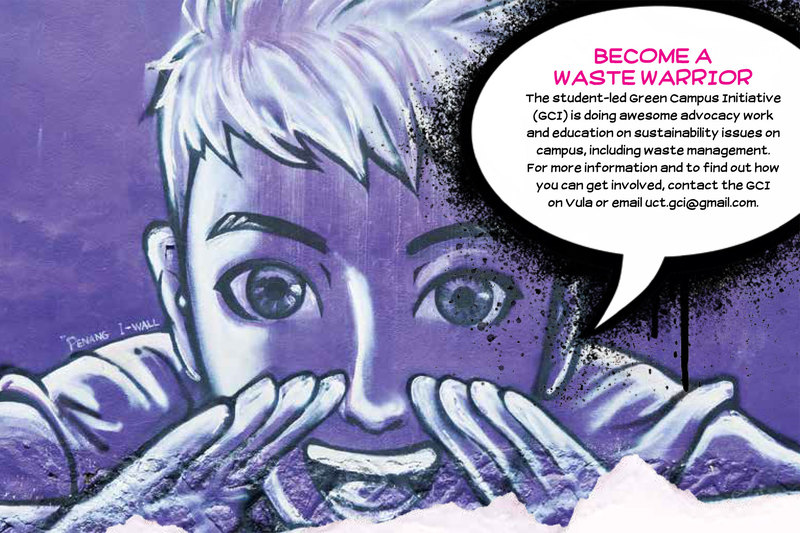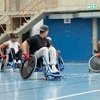Sustainable UCT
24 January 2019
Water resources are under increasing threat worldwide, and the University of Cape Town (UCT) has pledged to reduce its water consumption by half. Here’s what we all need to do.
In the bathroom
- Only flush toilets (everywhere) when necessary. If it’s yellow, let it mellow.
- Use as little toilet paper as possible to reduce the number of flushes.
- Don’t use the toilet as a dustbin.
- Take stop-start showers of two minutes or less.
- Save running water while waiting for it to get hot – use it for filling a kettle or the toilet cistern.
- Use water in a cup or basin for brushing your teeth and shaving.
- Collect grey water in the shower and use it to flush toilets or water plants.
- Use hand sanitiser where possible, or just enough soap and water to clean your hands. Remember, hygiene comes first!
In the kitchen and laundry
- Don’t defrost food by running it under a warm tap – use a microwave or take it out the night before.
- Only do laundry when necessary. Air and re-wear your clothes.
- Wait for a full load before running washing machines and dishwashers. Use the most efficient cycles.
- Hand-washing laundry uses less water than many washing machines, particularly older models without eco-cycles. Check your machine.
- Use as little soap as possible to save on rinsing water. Reuse rinsing water wherever possible.
Become a UCT Water Champion
Water Champions help build water awareness and improve water management on campus. For more information on becoming a Water Champion, contact the Water Task Team by emailing water@uct.ac.za or calling 021 650 5671.
Water leak at UCT?
Report it immediately to the 24-hour Maintenance Helpdesk on 021 650 4321/2. Most UCT residences have been fitted with electronic water meters. They are helping to improve water management and provide early alerts to possible leaks or excessive water use.
Recycling
What can I do?
UCT is on a mission to improve the recycling rate, but keeping the campus clean and recycling is not the sole responsibility of the cleaning staff – it’s everyone’s.
Become a waste warrior
The student-led Green Campus Initiative (GCI) is doing awesome advocacy work and education on sustainability issues on campus, including waste management. For more information and to find out how you can get involved, contact the GCT on Vula or email uct.gci@gmail.com.
Reduce waste
- Avoid food waste by taking only the food you know you will eat.
- Compost wet waste whenever you can – don’t toss your leftovers.
- Think about the packaging and containers you use – choose reusable items rather than disposable ones.
- Turn single-use items into multiple-use items – wash it out and use it again!
- Don’t toss it; repair it. Before you throw something away, think about how you could repair it or repurpose it.
Discard and separate
- Put all your waste in the appropriate bins:
- yellow-lidded bins for non-recycling waste
- green-lidded bins for recycling items
- white-lidded bins for clean, white office paper
- blue-lidded bins for leftover food waste.
- It’s everyone’s responsibility to keep wet and recyclable waste separate. If waste is not separated, recyclable items can become contaminated, which makes it difficult to recycle them.
- If a bin is full, find another one. Don’t leave trash on tables, benches or anywhere else.
- If you see litter lying around, pick it up and throw it in the right bin. Aside from being unsightly, littering adds to the cost of running the university.
 This work is licensed under a Creative Commons Attribution-NoDerivatives 4.0 International License.
This work is licensed under a Creative Commons Attribution-NoDerivatives 4.0 International License.
Please view the republishing articles page for more information.






